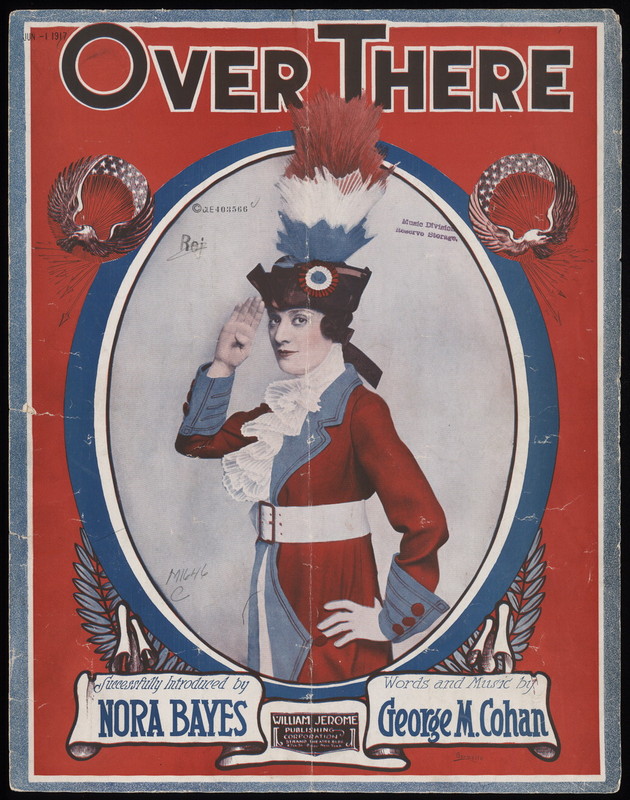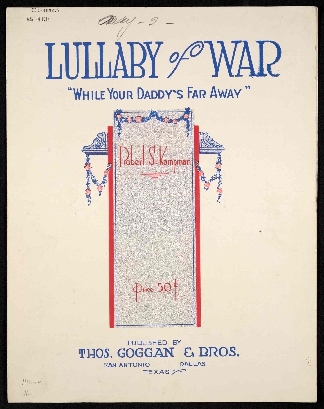In Comes the United States
On April 6, 1917, the United States enters The Great War. Just as their allies had done, the U.S. used music as a way of stirring up support for the war. Just like with wars previous, the United States believed that it would be relatively short. Many songs written at the beginning of U.S. involvement portray this sentiment, including the now iconic World War 1 song “Over There.”
This type of propaganda was used on every race, gender, class, and even age group. Children, some as young as newborn, were taught songs that made them believe the United States being involved in the war was a good thing, even if they were too young to understand what that fully entailed. For example, mothers would sing a “Lullaby of War” to their children to explain where their fathers were and why they needed to be away from home. One of these lullabies specifically states, “He’s a soldier man, a-fighting for his country U.S.A. / So you and I’ll be brave and good while your daddy’s far away.” It later goes on to say “…And he’ll find his boy grown up to be a great big soldier man / Who can take his daddy’s place to fight for his native country-land.” This last line almost contradicts the sentiment of a short war, which in reality is what happened because the United States was a part of World War 1 not for a month or two, but for two years. Though the last line of his particular song is contradictory, these lullabies as a whole eased the minds of children (and their worried mothers) who couldn’t wait to see their soldier dads again.

